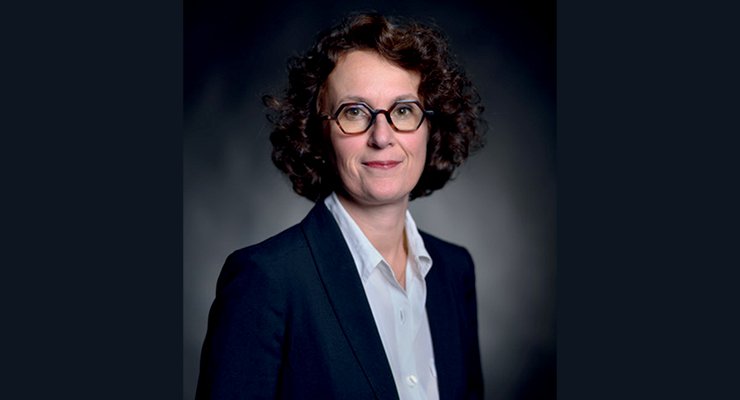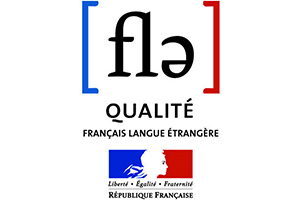
« Une vie professionnelle, ça se construit pas à pas »

Agir sur le monde en changeant le regard sur l’innovation

Design sonore made in UTC sur Radio France
A strategic international partnership is characterized by the following constituent elements
The following are the partnerships that have been identified at this stage as being of significant size and having the potential for strategic partnership:
Preferred (or privileged) international partnerships are distinguished by the following constituent elements:
The objective of these partnerships is to allow for a large number of targeted mobilities, including, if possible, the option of gaining a double degree or a work placement abroad. It can be monothematic, but presents a strong, but targeted, interest of a laboratory or department. These privileged partnerships are coordinated by a lecturer-cum-research scientist, a researcher or by qualified reference staff members.
As examples of such a partnership, we can cite the collaborations with
The notion of an international, so called “double degree” programme covers the possibility for a French or foreign student engineer to receive diplomas from two HE institutions in the same field, one in France and the other abroad, in which he or she has completed a sufficient part (according to national or institutional regulations) of the programme.
The key advantage it to gain a better understanding of a different system and to increase the attractiveness of the future engineer for the job market in the second country and for globally operating industrial groups.
Double degrees thus extend the duration of studies by about one semester, i.e., by six months or even one year.
Please be advised: some double degrees require the payment of foreign tuition fees, for more information, please contact us.
For many years, the UTC has upheld the Erasmus+ charter for higher education. This distinction allows the institution to develop its European partnerships, as well as to reinforce the quality of the mobility of its students, teachers and staff.
Moreover, UTC's involvement in the Erasmus+ programme is fully in line with its international strategy aimed at supporting modernization and internationalization.

Legal notice: This project is funded with the support of the European Commission. This publication reflects the views of the author only, and the European Commission is not responsible for any use that may be made of the information contained therein.
The democratization of the Erasmus+ programme is one of the objectives of the programme for the period 2014–2020. Erasmus+ aims to promote equity and inclusion by facilitating "access for participants from disadvantaged backgrounds and with fewer opportunities than their peers, where their situation limits or prevents their participation in transnational activities". Factors limiting the mobility of these people include socio-economic barriers, but also disability or health problems:
This is of particular interest to potential beneficiaries of the Erasmus+ programme, as the programme provides for special funding to cover the additional costs directly related to participants with disabilities and their accompanying persons. The programme also provides for additional funding to enable the participants concerned to have access to adapted technical and pedagogical support. All costs directly related to the disability of the participant and, where appropriate, of an accompanying person are covered by the programme, including travel and subsistence costs of accompanying persons.
When preparing for your departure abroad, it is important to budget for each month to avoid any surprises. You can count on available grants to support you, such as the Erasmus grant or AMIO grant, but if you are not eligible for these grants or if you need to supplement your living expenses, you can find out about the various student loans. Different banks offer student loans that can be obtained without a guarantee or without having a guarantor. It is also possible for young people to open a bank account without a guarantee of income. Some of these banks offer free credit cards and efficient management of your needs and procedures.
An intensive 4‑week French language course is offered to students hosted in the framework of international partnerships, before the beginning of each semester. This language training is also supplemented throughout the semester by weekly language classes of 3 to 4 hours.
These programmes are free for exchange students. Early registration is required given the number of places is limited.
French as a Foreign Language (FLE) courses are offered to all UTC students whether they are core, branch or postgraduate students. After a placement test, students are directed towards the UV of their level.
The purpose of the courses is as follows:
The teaching programmes are defined according to the levels of the Common Framework of Reference for Languages proposed by the Council of Europe.
The Centre de Français Langue Etrangère of the Université de Technologie de Compiègne obtained the Quality FLE Label in 2015, awarded by the Centre International d'Etudes Pédagogiques.
The Centre de Français Langue Etrangère of the Université de Technologie de Compiègne obtained the Quality FLE Label in 2015, awarded by the Centre International d'Etudes Pédagogiques.
This label guarantees high-quality levels in the 5 following areas:

UTC's FLE Centre guarantees effective linguistic preparation for engineering studies during the semester in the TSH Department, while the International Relations Department organizes, before the start of each academic year, intensive programmes for international students (February, July, August, approximately 100 hours each).
The French courses are designed in accordance with the language levels set out in the Common European Framework of Reference for Languages and aim to improve communication skills in an intercultural and professional context.
Since June 2019, the UTC has been engaged in a strategic exploratory approach to sub-Saharan French speaking Africa. Through an internal working party (WP) but also thanks to the participation in the Africa working party within the framework of the Sorbonne University Alliance, large-scale projects are gradually taking shape and should soon come to fruition. One of them would be based on the expertise of the IRD – Institut français de Recherche pour le Développement – and would concern the Côte d’Ivoire, also involving other member institutions of the Alliance Sorbonne University.
Guide de l'étudiant
Plaquette des relations internationales